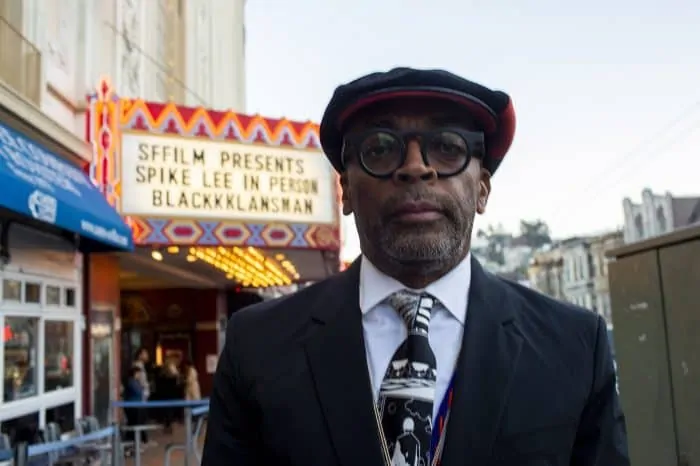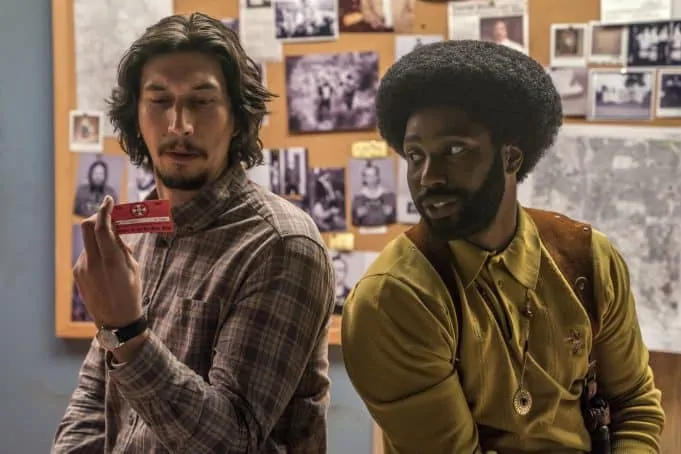Recently at the historic Castro Theatre in San Francisco, celebrated film director Spike Lee made an appearance. Favorable word of mouth and substantial press reviews of his latest film, Blackkklansman guaranteed a good turnout for his interview and subsequent showing of the film, already released nationwide.
The Castro Theatre is a landmark, one of the City’s oldest and most popular sites. Still owned by its founding family, the Castro hosts film festivals and special events throughout the year. The Spike Lee event had standing room only, with long lines to purchase popcorn and beverages, but nobody seemed to mind.
Lee was in good form, much more outgoing and unguarded than he was years ago when Malcolm X was released in 1992. The filming of Malcolm X was life-changing for him, and not just due to the visceral subject matter. He had to contend with an obstinate studio convinced that it had the right to turn this important film into a mere commercial release. Lee objected, the studio cut off his funding, and what happened next was historic. Lee called one Black celebrity after another – from Magic Johnson to Oprah Winfrey — told him or her what happened, and each responded with: “how much do you need?” When the Hollywood studio found out, it capitulated and Lee was able to complete the film he knew he was supposed to make.
During the interview at the Castro, Spike Lee affirmed that filmmaking is a very tough business; there is nothing easy about filmmaking.
Someone pitched the idea of a film from the memoir of retired police officer Ron Stallworth. Lee knew there was enough stuff to connect it to the present time, even though the story of infiltrating the kkk comes from the 1970s. Lee said he knew it could be, would be, much more than a period piece.
Divisive terminology is not new. The “America first” chant is old, he pointed out. It was first used against immigrants a century ago.
Divisive terminology is not new. The “America first” chant is old, he pointed out. It was first used against immigrants a century ago. And Lee emphasized that the film, Birth of a Nation, released in Los Angeles in 1915, went a long way toward legitimizing racial stereotypes. President Woodrow Wilson even showed the film in the White House. Release and publicizing of this film led to people of color being lynched.
Spike Lee also said that the calculated rewriting of American history also injured Native Americans. What American cinema did to them was criminal, he said, citing John Ford films and John Wayne characters.
The richness and beauty of the African-American community was not on the movie screen or the television screen for decades, not until Sidney Poitier and other pioneers were visible. Before then, American cinema was a kind of code of white male supremacy, according to Lee.

In a strong statement, Lee said we cannot move forward until we can agree that the U.S. was built on genocide and robbery. We need to acknowledge what this country is built on before we can move on.
It all comes back to American cinema, which dehumanized people. This is a powerful medium, he reminded us. Films can and do change society. Art can change the world.
Blackkklansman is about the world today because the issues have not changed. The Portland, OR police officer was able to infiltrate the kkk in the 1970s due to the lack of technology, the technology we take for granted today. On the telephone Officer Stallworth sounded “white.” When he needed to meet representatives of the kkk in person, the police department sent a Jewish American officer to play the part of Stallworth.
The film works so well because director Spike Lee knows his subject matter. He portrays personalities genuinely, people who actually believe the rhetoric they spouted. And he contrasts their dedication to racial supremacy with the attitudes of college students who had been schooled in patience by the late Dr. King and SCLC ministers, but who now are in a different phase of civil rights development, emboldened by the words of SNCC activists such as Stokely Carmichael.
Our country is deeply stressed at this point, director Lee is saying; and he is able to illustrate ably the connection between current displays of intolerance and the situation faced by Portland police in the 1970s
Our country is deeply stressed at this point, director Lee is saying; and he is able to illustrate ably the connection between current displays of intolerance and the situation faced by Portland police in the 1970s as they try to decide which is a greater threat to public safety – college students championing “black power” in public meetings, or kkk members meeting in secret with access to C-4 explosives and a huge cache of handguns and rifles.
This is a thought-provoking film, made more powerful by the fact that the civil rights crises of the 1970s are with us still, due to the resurgence of intolerance and the violence which accompanies it today. The subtle use of music and art to recall the earlier time period, mixed with humor, helps us understand our own history. And the film ends with the same poignancy as Michael Moore’s Fahrenheit 11/9, for in the end it is up to us as responsible citizens to make a positive difference.
Lee utilizes an international symbol of distress, which I first witnessed in the 2007 film, In the Valley of Elah. It applies even more today. This film ranks with Lee’s 25th Hour and Malcolm X. It may turn out to be his crowning cinematic achievement.


